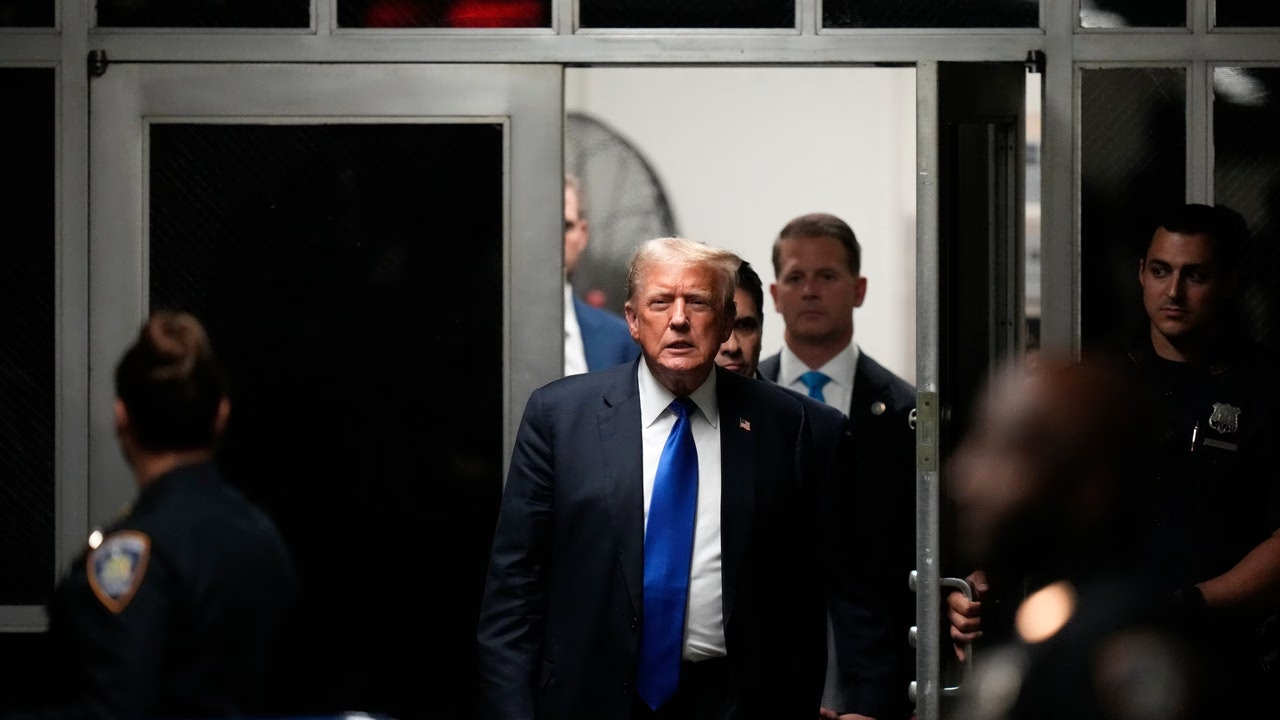Last April, Donald Trump made his first of many appearances at a Lower Manhattan courthouse. He had just become the first president, current or forme
Last April, Donald Trump made his first of many appearances at a Lower Manhattan courthouse. He had just become the first president, current or former, to be indicted on criminal charges. The circumstances were undeniably historic, and as his motorcade made its way downtown from Trump Tower, the crowds started to gather. On one side of police barricades were protesters who had made signs showing Trump behind bars or in an orange jumpsuit; on the other were the former president’s supporters, including Marjorie Taylor Greene, who wielded a bullhorn.
The scene, in retrospect, set up an extended anticlimax. Trump was ultimately convicted this past spring on 34 counts of falsifying business records in order to cover up a hush money payment to Stormy Daniels. But he successfully leveraged the charges against him in New York and several other jurisdictions as outlaw branding—his Georgia mug shot became a defining image of his campaign—and in winning the 2024 election, effectively put the immediate matter of his freedom to rest. Even Michael Cohen, Trump’s former fixer and the prosecution’s star witness in the Manhattan case, told me this week that the conviction should be dismissed.
On Friday, Justice Juan Merchan, the judge in the case, said he would allow Trump’s lawyer to formally seek a dismissal. And in the meantime, he confirmed that Trump will not be sentenced next week as had been scheduled, postponing the hearing indefinitely. The sentencing had already been delayed several times after Trump’s conviction in May and then, shortly afterward, the Supreme Court’s presidential immunity ruling, which shielded Trump from criminal exposure for official acts. Earlier this week, prosecutors said they wouldn’t drop the case, and suggested that the sentencing could be delayed until the end of Trump’s term, in 2029.
In its end game, the long saga has now shrunk to something more procedural. Trump’s motion to dismiss the case based on his electoral victory is due in December, just weeks before he will be inaugurated for a second presidential term.

COMMENTS